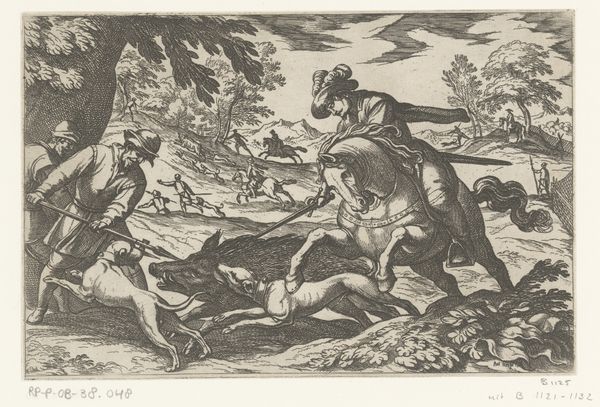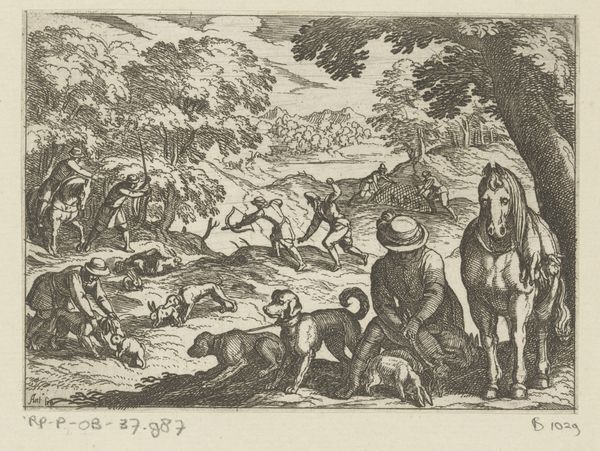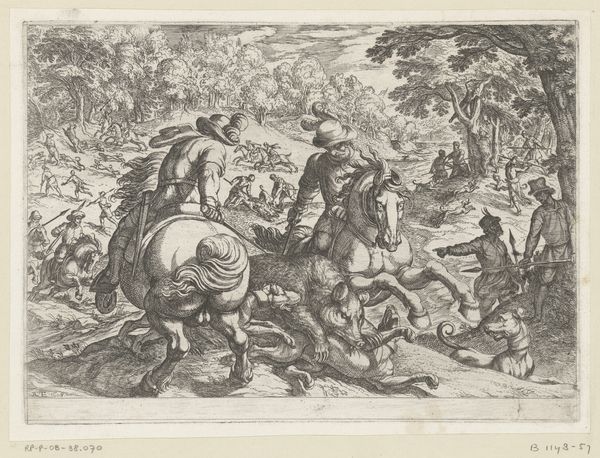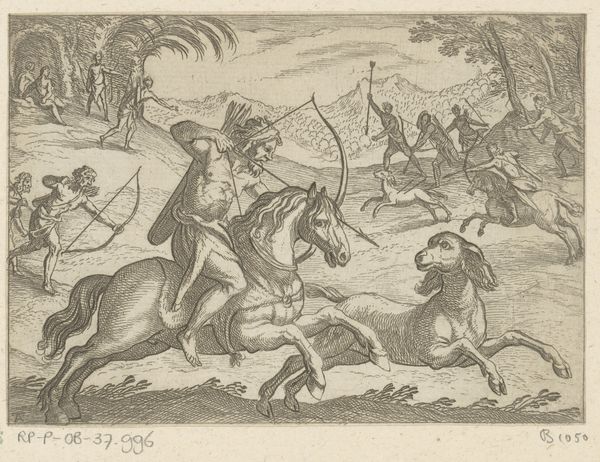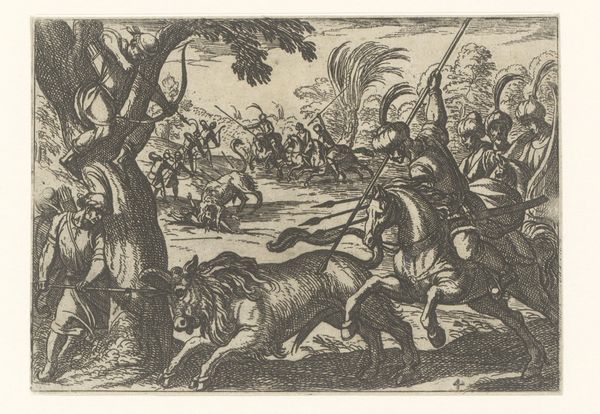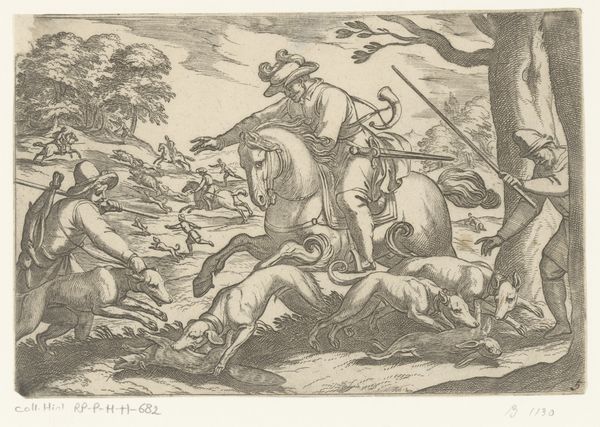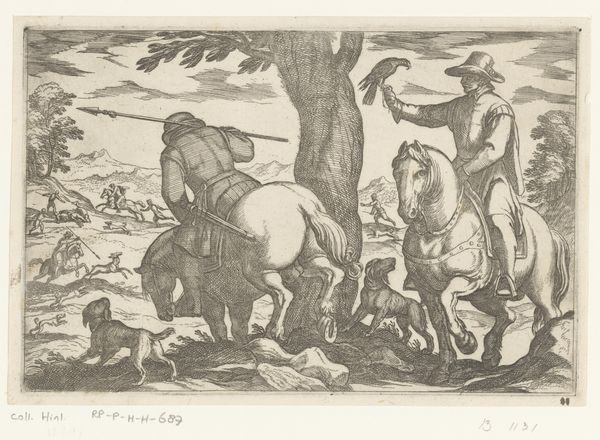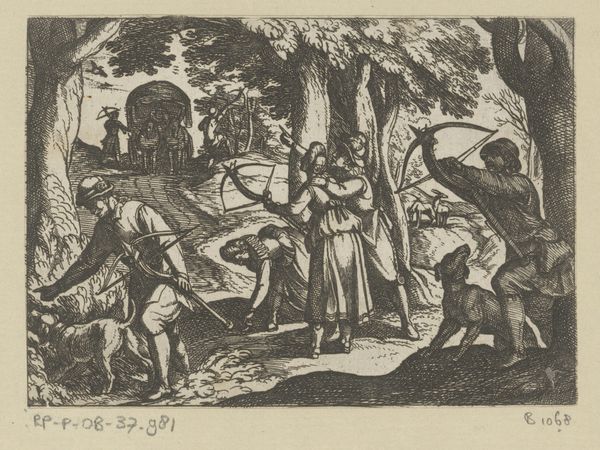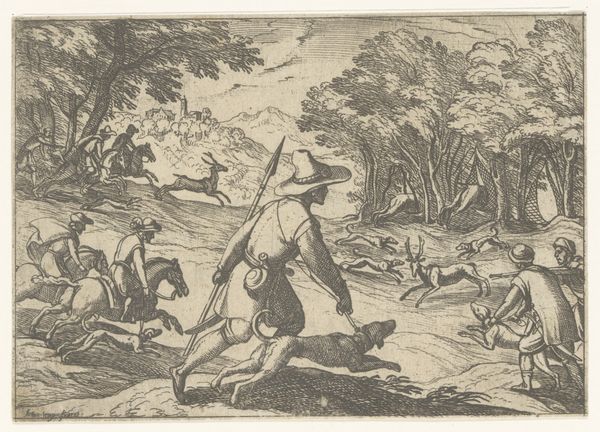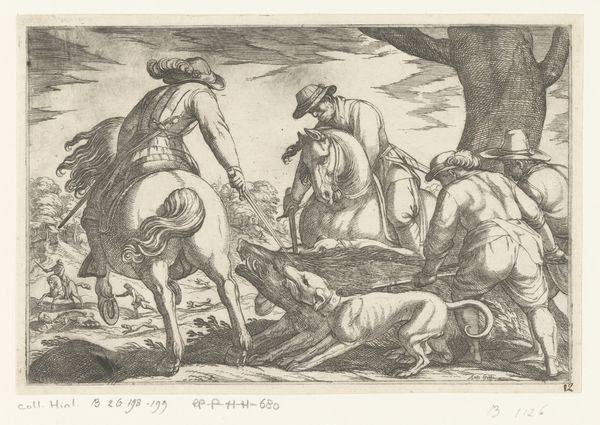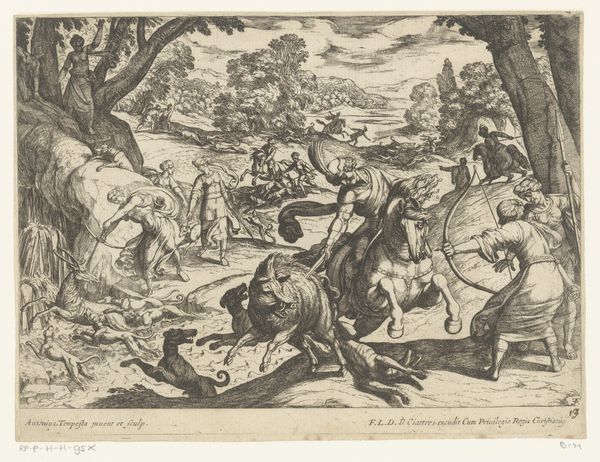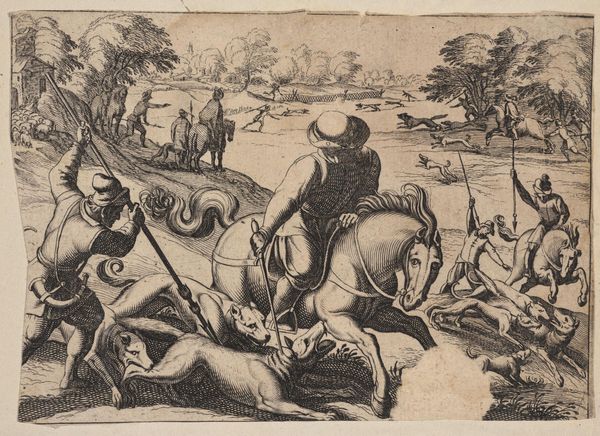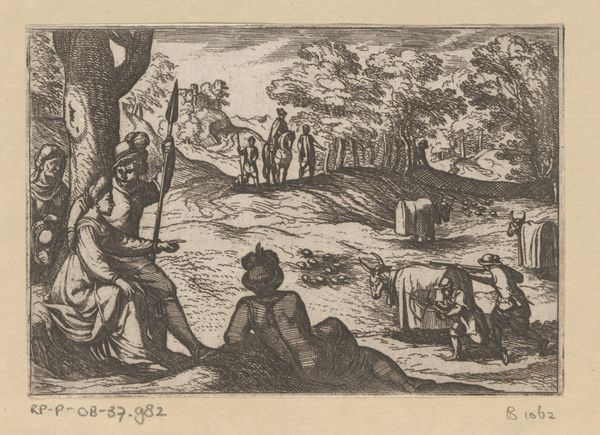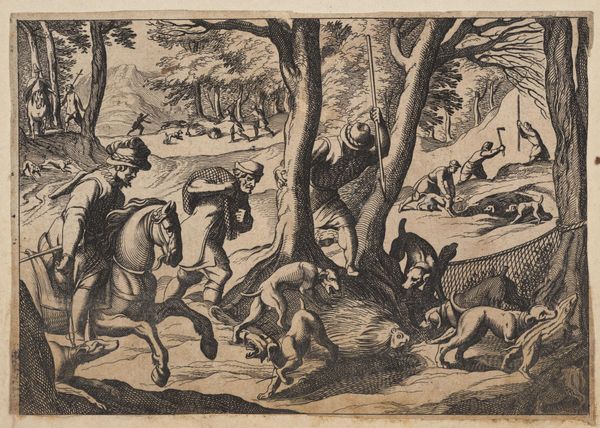
print, etching, engraving
# print
#
pen illustration
#
etching
#
landscape
#
caricature
#
figuration
#
11_renaissance
#
line
#
genre-painting
#
history-painting
#
engraving
Dimensions: height 100 mm, width 141 mm
Copyright: Rijks Museum: Open Domain
This print, "Hunting Porcupines with Nets," was made in the late 16th or early 17th century by Antonio Tempesta using etching, a printmaking technique dependent on chemistry and craft. In etching, a metal plate is coated with a waxy, acid-resistant substance called a ‘ground’. The artist then scratches an image into this ground, exposing the metal beneath. When the plate is submerged in acid, the exposed lines are ‘bitten,’ creating grooves. The deeper the bite, the more ink the groove will hold. After removing the ground, ink is applied to the plate, and the surface is wiped clean, leaving ink only in the etched lines. Finally, the plate is pressed onto paper, transferring the image. Think about the labor involved. Tempesta's mastery over this process highlights the skilled traditions of printmaking, and the way they can be used to depict other forms of labor, in this case hunting. The print makes us aware of these men's work, and the consumption and class that it allows. Paying attention to materials, making, and context helps us fully understand the meaning of this artwork.
Comments
No comments
Be the first to comment and join the conversation on the ultimate creative platform.
